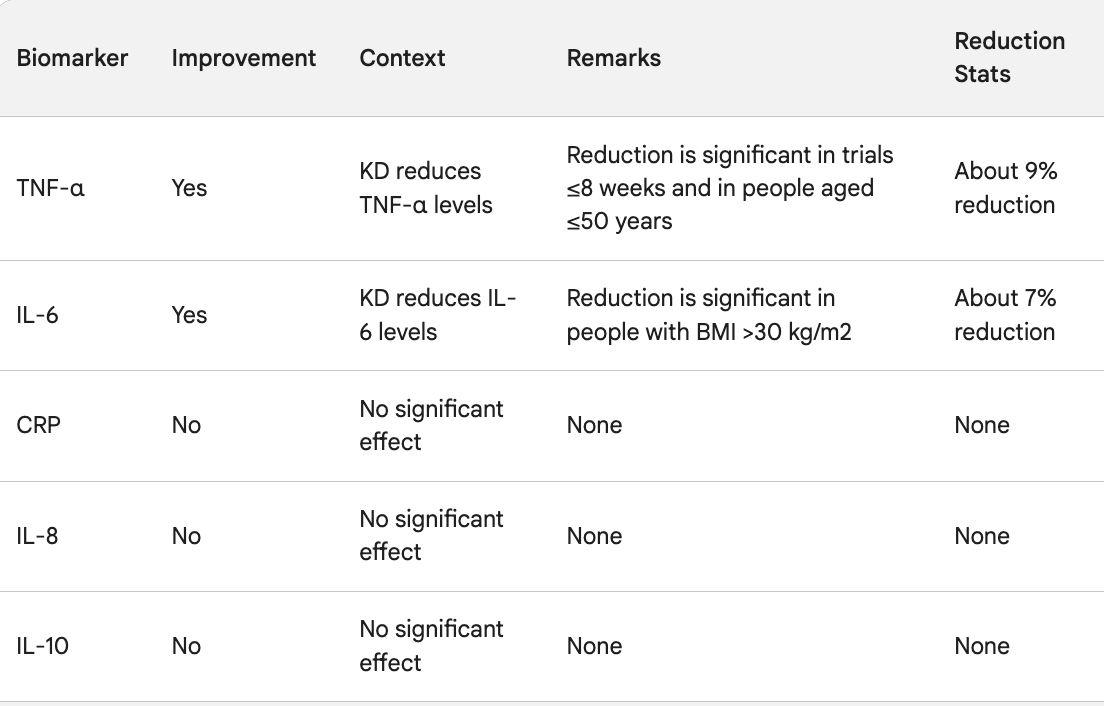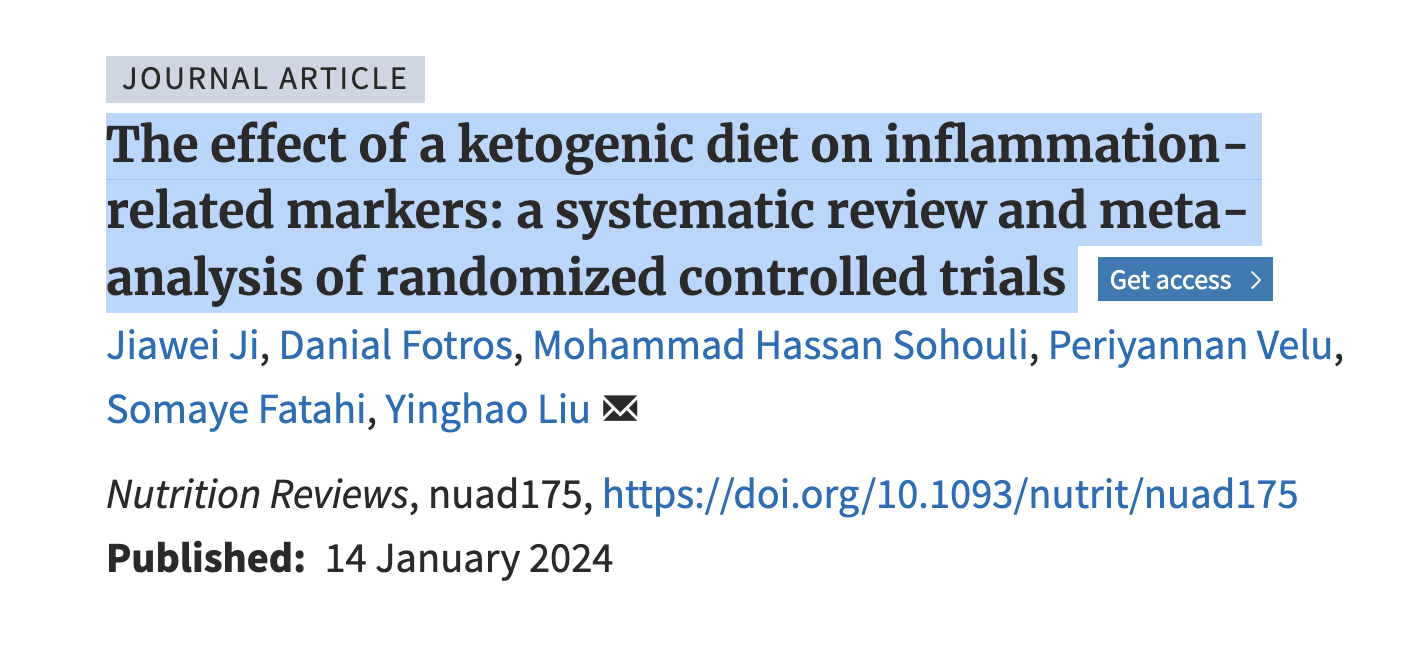"The effect of a ketogenic diet on inflammation-related markers: a systematic review and meta-analysis of randomized controlled trials " 2024 Nutrition Reviews, with 44 RCT studies included
Takeaway: meaningful improvement in 2 biomarkers IL-6 -7% TNF -9%; and no changes in CRP, IL-8 & IL-10)
Intervention variation: The duration of the ketogenic diet varied, but some short-term options (≤8 weeks) were effective.
Participants: Focused on adults with various health conditions, suggesting broader applicability.
Main finding: A ketogenic diet potentially reduces inflammation, measured by TNF-alpha and IL-6 levels. Important caveat: Reduction may be influenced by individual factors like age, weight, and adherence to the diet.
Keto Diet: a high-fat diet?
Fat: 70-80% of daily calories
Protein: 20-25% of daily calories
Carbohydrates: 5-10% of daily calories
5/7536068?login=false](https://academic.oup.com/nutritionreviews/advance-article-abstract/doi/10.1093/nutrit/nuad175/7536068?login=false)

